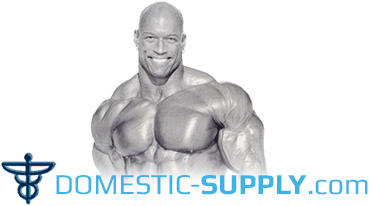What Are the Side Effects of Anabolic Steroids?

Anabolic steroids, synthetic substances related to male sex hormones, are often used for enhancing athletic performance. Despite their perceived benefits, anabolic steroids carry significant risks and side effects.
These substances can lead to severe physical health problems, including heart conditions, liver damage, and hormonal imbalances. They also have profound effects on mental health, potentially leading to mood disorders and cognitive impairment.
Long-term use can exacerbate these issues, increasing the risk of addiction. Moreover, steroids can negatively affect sexual health and social relationships.
It is crucial to understand these side effects and consider healthier alternatives to manage performance and physique.
Key Takeaways
- Anabolic steroids have short-term side effects such as severe acne, increased body and facial hair, fluid retention, and elevated blood pressure.
- Long-term side effects of anabolic steroid use include increased risk of cardiovascular diseases, liver and kidney damage, and changes in blood lipid profile.
- Steroid use can have negative impacts on mental health, leading to mood disorders, anxiety, panic, cognitive impairments, and increased risk of suicide.
- Prolonged steroid use can result in irreversible damage to the cardiovascular system, disruptions in hormone production leading to conditions such as gynecomastia and virilization, and negative effects on sexual health including erectile dysfunction and changes in menstrual cycles.
Understanding Anabolic Steroids
In order to fully comprehend the side effects, it is crucial to first understand what anabolic steroids are and how they function within the human body. Anabolic steroids, scientifically known as anabolic-androgenic steroids (AAS), are synthetically produced variants of the naturally occurring male hormone testosterone. These substances promote the growth of skeletal muscle (anabolic effects) and the development of male sexual characteristics (androgenic effects).
AAS are structurally related and have similar effects to testosterone in the body. They increase protein within cells, especially in skeletal muscles, and also have varying degrees of androgenic and virilizing effects, including induction of the development and maintenance of masculine secondary sexual characteristics such as the growth of facial and body hair.
The body naturally produces testosterone, an essential hormone for the promotion of muscle growth and bone maturation, as well as for the maintenance of life processes. The levels of this hormone are controlled by the hypothalamus and pituitary gland in the brain. However, when anabolic steroids are introduced into the body, they cause a disruption of this hormonal balance.
Anabolic steroids can be taken orally, injected intramuscularly, or applied to the skin. The body metabolizes these substances into molecules that can pass into cells and bind to an androgen receptor. Once attached, this receptor complex migrates to the nucleus of the cell where it influences the production of proteins. This process is what leads to muscle growth and strength increase.

Side Effects on Physical Health
Despite their muscle-building properties, anabolic steroids come with a plethora of physical health side effects that are both short-term and long-term. Short-term side effects are often noticeable soon after starting the use of these substances and include severe acne, increased body and facial hair, fluid retention, and elevated blood pressure. These effects reflect the body's immediate reaction to the influx of synthetic hormones.
Long-term side effects are typically a result of prolonged use of anabolic steroids and may not be immediately apparent. These include an increased risk of cardiovascular diseases, liver damage, kidney damage, and changes in blood lipid profile leading to atherosclerosis. Men may experience testicular shrinkage, reduced sperm count, and gynecomastia, a condition characterized by the enlargement of breast tissues. Women, on the other hand, may experience a deepening of the voice, menstrual irregularities, and an increased size of the clitoris. Both genders can experience baldness and skin thinning.
It is also important to note that people who inject anabolic steroids are at a higher risk of contracting blood-borne diseases like HIV and Hepatitis B and C due to shared needles. Moreover, these substances can also interfere with the body's natural hormone production, leading to a myriad of psychological and physiological imbalances.
Steroids and Mental Health Impacts
Beyond the significant physical health implications, anabolic steroids also pose substantial risks to mental health. The psychotropic effects of these substances have been widely researched, revealing a gamut of potential adverse outcomes. The misuse of anabolic steroids can lead to alterations in brain structure and function, contributing to various psychiatric disorders and symptoms.
Clinically, several mental health disorders have been associated with anabolic steroid use, the most common of which are mood disorders. Studies have shown that steroids can induce hypomania and major depression in users, often manifested by extreme mood swings, irritability, and aggression commonly referred to as 'roid rage'. Moreover, symptoms of anxiety and panic can also be induced or exacerbated by steroid use.
Cognitive impairment is another significant concern, with research demonstrating that long-term steroid use can result in deficits in memory, attention, and visuospatial abilities. Furthermore, the misuse of steroids has been linked to an increased risk of suicide, likely due to the aforementioned mood disturbances and cognitive impairments.
It is also important to consider the potential for steroid-induced psychiatric disorders to persist even after cessation of steroid use. Some individuals may experience prolonged psychiatric effects, such as depression and anxiety disorders, which require long-term management and treatment.
Long-Term Consequences of Steroid Use
Understanding the long-term consequences of anabolic steroid use is crucial, as these substances can cause irreversible damage to various body systems and significantly impact the quality of life. The prolonged use of these substances, especially in high doses, can lead to a myriad of health issues, affecting both the physical and mental well-being of the users.
Physiologically, one of the most severe impacts of steroid use is on the cardiovascular system. Steroids increase the risk of heart disease and stroke by raising blood pressure, altering lipid profiles, and causing direct myocardial injury. This can result in severe cardiac conditions, including congestive heart failure and cardiomyopathy.

The endocrine system is also significantly affected, as steroids disrupt the normal production of hormones in the body. This can lead to conditions such as gynecomastia in men, characterized by enlargement of breast tissue, and virilization in women, characterized by the development of masculine characteristics. Additionally, steroid use can cause testicular atrophy, infertility, and impotence in men, and menstrual irregularities in women.
The hepatotoxicity of steroids is well documented, with potential complications ranging from liver cysts and tumors to full-blown liver failure. Furthermore, prolonged steroid use can lead to negative psychological effects, including mood swings, aggression, and increased risk of suicide.
Steroids' Effect on Sexual Health
Delving into the impact on sexual health, anabolic steroids wield a significant influence, often leading to a range of adverse effects that include but are not limited to infertility, decreased sexual drive, and severe hormonal imbalances. The exogenous introduction of anabolic steroids disrupts the normal endocrine system, altering the production and release of sex hormones like testosterone and estrogen.
In men, prolonged use of anabolic steroids can lead to hypogonadism, a condition characterized by the diminished functionality of the testes. This can result in a decrease in sperm count, leading to infertility. Moreover, the excess synthetic testosterone can reduce the gonadotropin-releasing hormone (GnRH), which consequently suppresses the production of luteinizing hormone (LH) and follicle-stimulating hormone (FSH). The suppression of these hormones can lead to testicular shrinkage and decrease in libido.
On the other hand, women can experience menstrual irregularities and even amenorrhea, the absence of menstrual periods. The increase in testosterone levels can also lead to hirsutism, an abnormal growth of hair on the face and body, and clitoromegaly, an enlargement of the clitoris.
In both genders, the long-term use of anabolic steroids can cause an imbalance in the level of high-density lipoprotein (HDL) and low-density lipoprotein (LDL) cholesterol. This can lead to cardiovascular problems, further exacerbating sexual health issues like erectile dysfunction in men and decreased libido in women.
The Impact on Social Relationships
The misuse of anabolic steroids can also have profound implications on an individual's social relationships due to changes in mood and behavior. Studies suggest that steroid abuse can lead to mood disorders, including irritability, hostility, and aggression, which can strain interpersonal relationships. The National Institute on Drug Abuse reports that steroid users may exhibit uncontrolled bouts of anger, commonly referred to as 'roid rage', which can result in violent, aggressive behavior.
Further, the use of these substances can lead to psychological dependence, causing users to prioritize steroid use over essential social obligations and relationships. The obsessive focus on body image and performance-enhancing drugs can result in social isolation and withdrawal from activities previously enjoyed.
Prolonged steroid abuse may also lead to paranoia, jealousy, and impaired judgement, which can cause severe disruptions in the individual's social and family life. The frequent mood swings and unpredictable behavior associated with steroid use can also lead to a breakdown of trust in relationships, making it difficult for the user to maintain meaningful connections.

Moreover, the societal stigma attached to steroid abuse and the potential legal consequences of their illicit use can further complicate social interactions. Individuals may feel marginalized, leading to feelings of shame and secrecy that can further drive a wedge in their social relationships.
Steroids and Addiction Potential
Anabolic steroids, when misused, can trigger a perilous cycle of addiction, often resulting in a series of health and social consequences. The potential for addiction stems from the fact that steroids, particularly when taken in excessive amounts, can stimulate the brain's reward system, leading to a powerful sense of euphoria and increased physical performance. This positive reinforcement can lead to repeated use, despite negative consequences, a hallmark of addiction.
Scientific studies have shown that long-term use of anabolic steroids can induce changes in the brain's neurochemistry, particularly in the dopamine and serotonin pathways, which are associated with reward and mood regulation. This can lead to psychological dependence, where users continue to take steroids to avoid withdrawal symptoms such as mood swings, fatigue, restlessness, loss of appetite, insomnia, and decreased libido.
Notably, tolerance to anabolic steroids can also develop over time. This means users may need to increase their dosage to achieve the same effects, thereby escalating their risk of serious health complications.
The process of withdrawal from anabolic steroids, on the other hand, can be particularly challenging due to the potential for severe psychological effects, such as depression and suicidal ideation. It is therefore critical that proper medical supervision is sought during the cessation process to ensure safety and mitigate any potential risks.
Healthy Alternatives to Steroids
Transitioning from the perils of anabolic steroid misuse, it is crucial to highlight the availability of healthy alternatives that can promote physical enhancement without the associated health risks. Instead of relying on synthetic substances, individuals can turn to natural supplementation, balanced nutrition, and structured exercise regimens.
For instance, protein supplements, particularly those derived from whey or casein, have been clinically proven to stimulate muscle growth effectively. Amino acids such as leucine, isoleucine, and valine, collectively known as branched-chain amino acids (BCAAs), are also instrumental in muscle protein synthesis. Creatine, a compound naturally produced in the human body, can be supplemented to increase strength and muscle mass, amongst other benefits. Studies further attest to the effectiveness of beta-alanine and HMB (beta-Hydroxy beta-methylbutyrate) in enhancing physical performance and reducing muscle fatigue.
Moreover, a balanced diet rich in lean proteins, complex carbohydrates, and healthy fats plays a pivotal role in natural body transformation. Consuming nutrient-dense, whole foods helps the body to repair, grow and maintain muscle tissue, ultimately promoting physical enhancement.
Lastly, a structured, progressive resistance training regimen forms the cornerstone of muscle building and strength gains. It stimulates the synthesis of muscle proteins, fostering hypertrophy, and can be complemented by aerobic exercises for overall fitness.

While these alternatives may not produce immediate, dramatic results as anabolic steroids do, they offer a sustainable, risk-free approach to physical enhancement. They underscore the importance of patience, consistency, and a holistic approach to health and fitness. It is vital to remember that enduring results are often the product of long-term, healthy habits rather than quick, potentially harmful fixes.
Frequently Asked Questions
What Are the Legal Implications of Using Anabolic Steroids Without a Prescription?
The legal implications of using anabolic steroids without a prescription can be severe. These substances are classified as controlled substances in many jurisdictions, including the United States. Unauthorized possession or distribution can lead to significant fines and imprisonment.
Additionally, athletes caught using these substances can face bans or suspension from their sports. It's crucial to understand that the legal consequences are designed to protect individuals from potential health risks.
How Can One Differentiate Between Legal and Illegal Anabolic Steroids?
Legal and illegal anabolic steroids can be differentiated based on their approved medical use, prescription requirement, and their sale regulation.
Legal anabolic steroids are used for medical purposes, require a doctor's prescription, and are regulated by government agencies.
On the other hand, illegal anabolic steroids are often sold in unregulated markets, do not have approved medical uses, and are typically used for non-medical purposes such as performance enhancement.
Are There Any Dietary Restrictions or Recommendations When Using Anabolic Steroids?
When using anabolic steroids, no specific dietary restrictions have been universally recommended. However, maintaining a balanced, nutrient-rich diet is crucial to support the body's needs during steroid use. It's advisable to consume ample protein, healthy fats, and complex carbohydrates.
Hydration is also vital. Excessive consumption of substances like alcohol should be avoided as it can increase the risk of liver damage, a potential side effect of anabolic steroid use.
What Is the Procedure for Safely Disposing of Unused Anabolic Steroids?
Safely disposing of unused anabolic steroids involves specific steps to prevent misuse and environmental harm. Do not flush or pour them down the drain. Instead, take advantage of drug take-back programs or follow FDA guidelines for medication disposal at home.

This typically involves mixing the drugs with an unpalatable substance, placing them in a sealed container, and disposing them in the trash. Consult with a healthcare provider for specific instructions.
What Is the Global Prevalence of Anabolic Steroids Misuse?
The global prevalence of anabolic steroids misuse varies widely due to differing legal statuses and cultural acceptance. However, estimates suggest that millions worldwide partake in non-medical anabolic steroid use.
Prevalence often peaks in males aged 18-34, with a prevalence estimate of up to 6.4% in this demographic. Misuse is common in athletic and fitness contexts, though usage for aesthetic purposes is also prevalent.
It's critical to understand these figures to address the associated health risks.
Conclusion
In conclusion, anabolic steroids present numerous adverse effects on physical, mental, and sexual health. Long-term use may lead to grave consequences including addiction. Its impact extends to social relationships, often negatively.
It is essential to promote awareness about the dangers of these substances while advocating for healthier, natural alternatives for athletic performance enhancement and bodybuilding. The risks associated with anabolic steroids are considerable and should not be underestimated.
